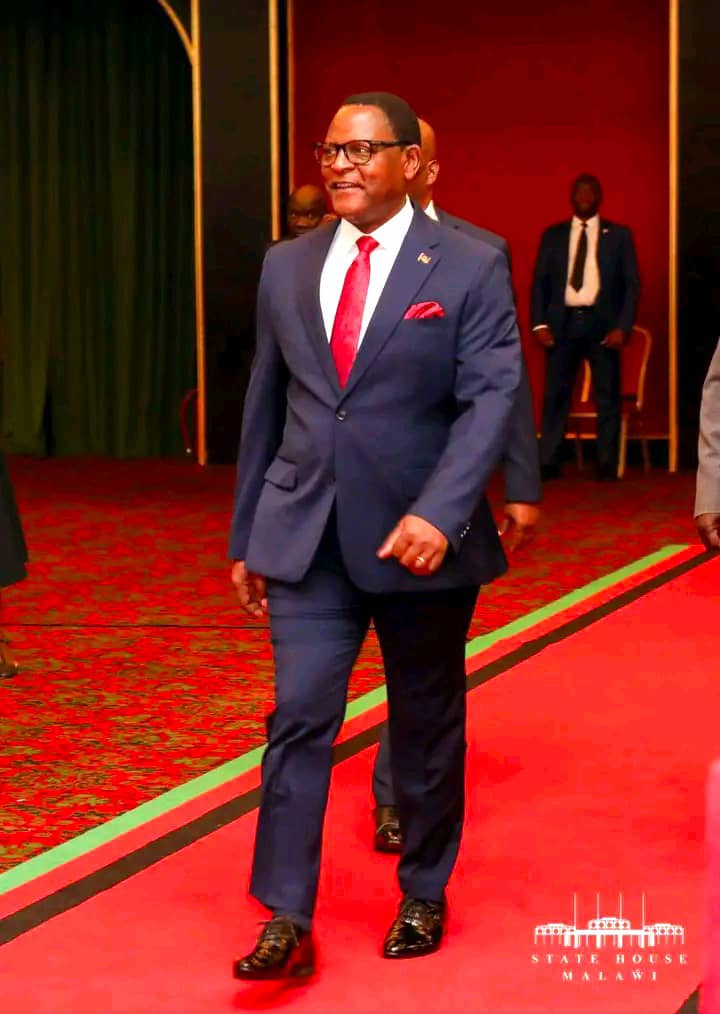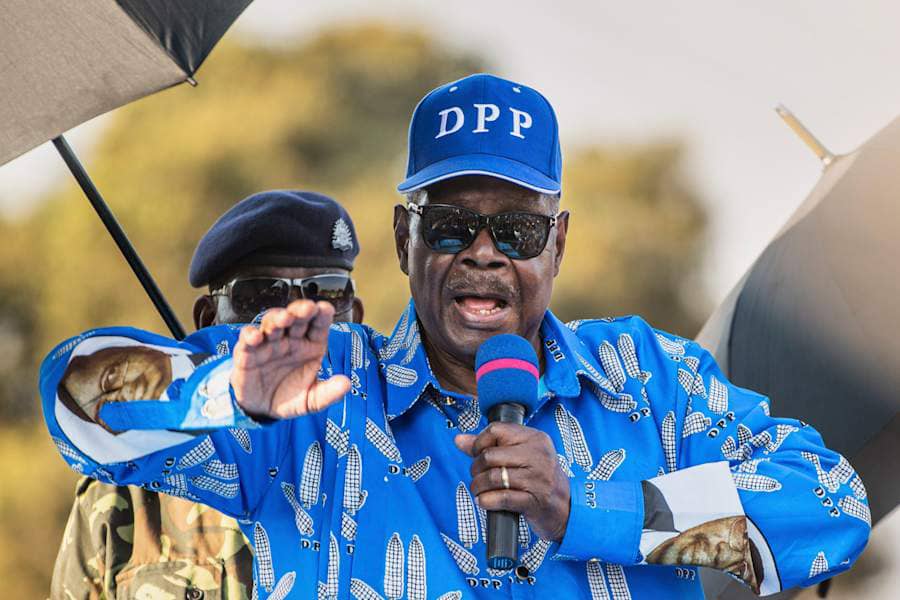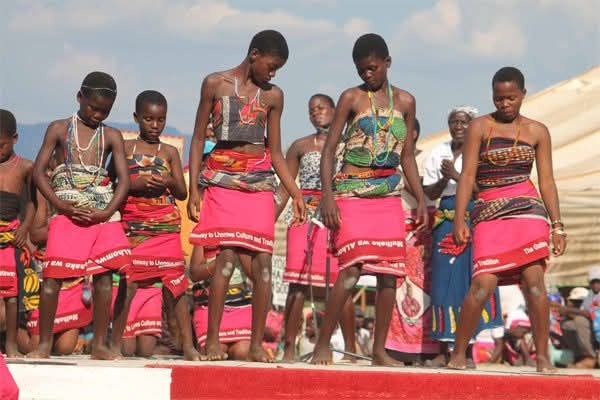By Jones Gadama
Lazarus Chakwera, the President of Malawi, came into power with a wave of optimism and a promise of transformative change.
His campaign slogan, “High 5,” resonated with many Malawians who were eager for a new direction after years of political instability and economic challenges.
Chakwera’s pledge to create one million jobs was a cornerstone of his campaign, a beacon of hope for a nation grappling with high unemployment rates, particularly among the youth. However, as his presidency has unfolded, the reality has starkly contrasted with the promises made during his campaign.
The loss of over one million jobs during his tenure raises serious questions about his leadership and effectiveness, particularly as he presides over celebrations of Labour Day in Balaka.
The irony of Chakwera celebrating Labour Day while the nation faces a staggering unemployment crisis is not lost on many. Labour Day is a time to honor the contributions of workers and to reflect on the state of employment in the country. Yet, under Chakwera’s leadership, the job market has deteriorated significantly.
The promise of one million jobs has not only gone unfulfilled; it has been overshadowed by the harsh reality of job losses. This contradiction highlights a fundamental issue: Chakwera’s disconnect from the realities faced by ordinary Malawians.
His administration’s failure to create jobs, coupled with the significant job losses, paints a picture of a leader who is out of touch with the needs and aspirations of his people.
Chakwera’s repeated promises, including the recent claim during the University of Malawi’s graduation ceremony that he would create three million jobs, further illustrate his tendency to make grandiose statements without a clear plan for implementation.
Such declarations, especially when they are not backed by tangible results, contribute to a growing perception that he is a spent force, lacking the vision and capability to lead the country effectively. The youth, who are the most affected by unemployment, are left disillusioned and frustrated.
They had hoped for a leader who would prioritize their future, yet they find themselves in a situation where opportunities are dwindling, and prospects seem bleak.
The economic landscape of Malawi has been challenging, with various factors contributing to the current state of affairs.
However, leadership is about navigating these challenges and finding solutions. Chakwera’s administration has struggled to address the root causes of unemployment, such as inadequate investment in key sectors, lack of infrastructure, and insufficient support for small and medium enterprises.
Instead of fostering an environment conducive to job creation, his government has been criticized for its inability to implement effective policies that would stimulate economic growth and employment.
Moreover, the celebration of Labour Day under Chakwera’s presidency feels disingenuous.
It is a day meant to honor the dignity of work and the contributions of workers to the economy. Yet, as he stands before the nation, the reality is that many workers are facing job insecurity, and countless young people are unable to find meaningful employment.
The disconnect between the celebration and the lived experiences of the people is stark. It raises questions about Chakwera’s priorities and whether he truly understands the struggles of the Malawian workforce.
Critics argue that Chakwera’s administration has been characterized by a lack of accountability and transparency.
Promises made during the campaign have not been met with corresponding actions, leading to a growing sense of betrayal among the electorate. The youth, in particular, feel let down by a leader who seemed to understand their plight but has failed to deliver on his commitments.
This sense of disillusionment is compounded by the perception that Chakwera is more focused on maintaining his position than on addressing the pressing issues facing the nation.
As Chakwera presides over Labour Day celebrations, it is essential to reflect on the broader implications of his leadership.
The loss of jobs and the rising unemployment rate are not just statistics; they represent real lives affected by economic hardship. Families are struggling to make ends meet, and the future of many young people hangs in the balance.
The celebration of Labour Day should be a moment of reflection and commitment to improving the lives of workers, yet it risks becoming a hollow gesture under a leadership that has failed to deliver on its promises.
Lazarus Chakwera’s presidency has been marked by a series of unfulfilled promises and a growing disconnect from the realities faced by the Malawian people. His celebration of Labour Day in the face of rising unemployment and job losses raises serious questions about his leadership and priorities.
As he stands before the nation, it is crucial to recognize that the true measure of a leader lies not in grand promises but in the ability to effect meaningful change in the lives of the people they serve.
Chakwera’s tenure has been characterized by a lack of accountability and a failure to address the pressing issues facing the nation, leading many to view him as a spent force unfit to celebrate the dignity of work.
The youth of Malawi deserve a leader who will prioritize their future and work tirelessly to create opportunities for all. As it stands, Chakwera’s presidency has fallen short of these expectations, leaving a nation yearning for genuine leadership and a renewed commitment to job creation and economic growth.
- NBS Bank commits K5 billion to BEAM sanitation drive
- Simplex Chithyola Accuses Government of Balancing Books on the Backs of the Poor
- A Cleaner, Healthier Malawi: VP Witnesses Launch of BEAM Trust’s Ambitious Plan
- BMTV removes Chizaso Nyirongo from Amaryllis Hotel sale
- A Catholic health care organization to implement mental health project
- Inua Advocacy promises to work with government to end human trafficking
- Mutharika to grace BEAM Strategy launch in Lilongwe
- SKC memorial golf preps gain momentum
- ActionAid Strengthens Early Childhood Development in Balaka
- Teachers of Mangochi What’sapp group Administrators Condemn Backbiting, Remove Two Headteachers from the group
- K40 MILLION BOOST: Chinese Business Community Injects Fresh Lifeline into BEAM Ahead of New Strategic Plan
- Former Deputy Health Minister Halima Daudi Arrested Over Suspected Fake $76,900
- Imran Jumbe Condemns Alleged Abuse of National Economic Empowerment Fund Funds, Calls It a “Moral Crisis”
- NBM plc supports ‘Onesimus vs Armstrong’ concert with K5 million
- MLS blasts ACB boss over ‘white wash’ in K128.75Bn Amaryllis Hotel deal


















